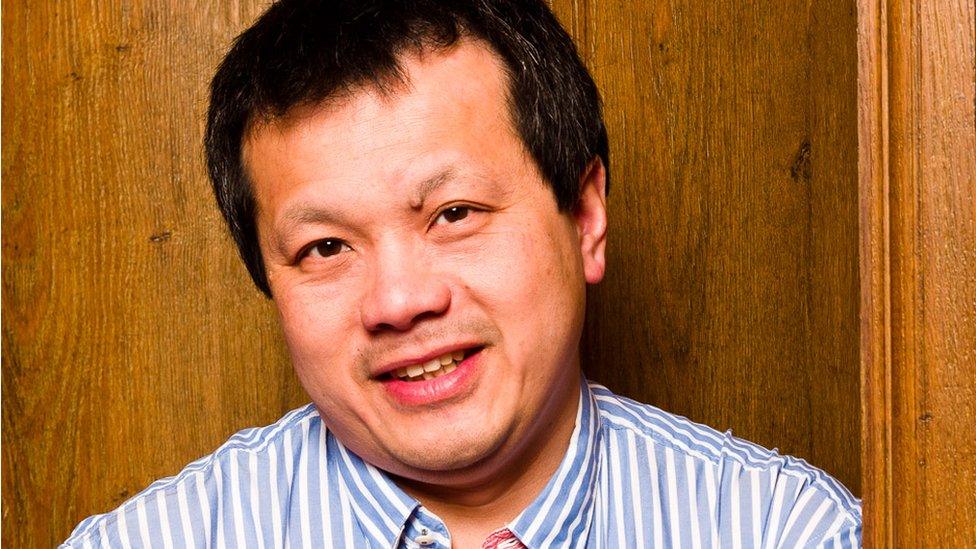Drag queen or delivery driver: What's your 'side hustle'?
- Published
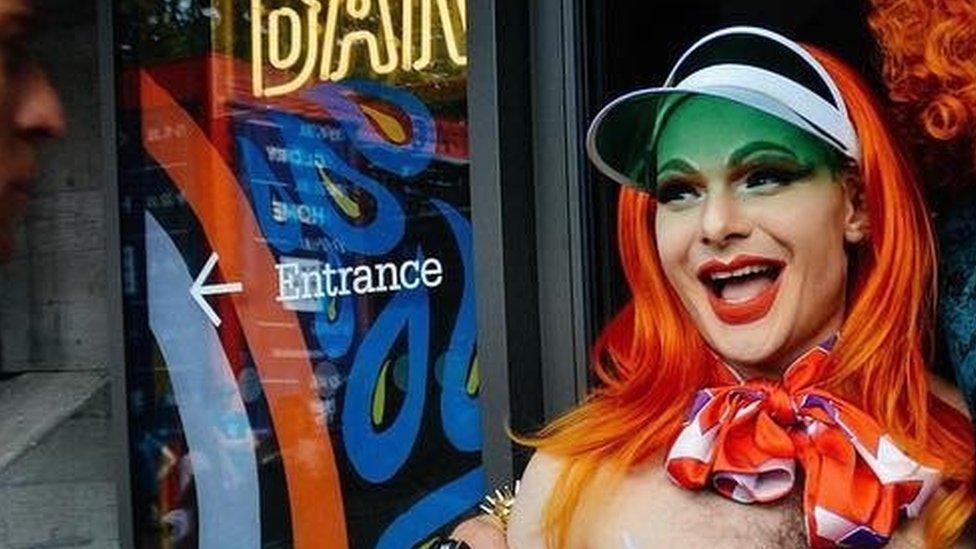
James says it's common for people of his generation to have more than one job
At 3pm most days, James Tobin puts on a shirt and tie and goes to work running educational workshops. In the evening he puts on a wig and fishnets and becomes a drag queen.
At the weekends, he's a roaming estate agent, on call to show around would-be tenants.
All this may sound exhausting, but James's multitasking lifestyle is far from unusual.
The 'side hustle' generation
The 28-year-old is part of a generation of "side hustlers" - entrepreneurial young people who work on their own projects alongside their main source of income.
Running a second business or sideline is becoming increasingly common.
One in four workers run at least one side hustle business, Henley Business School estimates, external, half of which were started in the past two years.
Those aged 25 to 34 are most likely to be involved, with 37% thought to run a sideline of some kind.
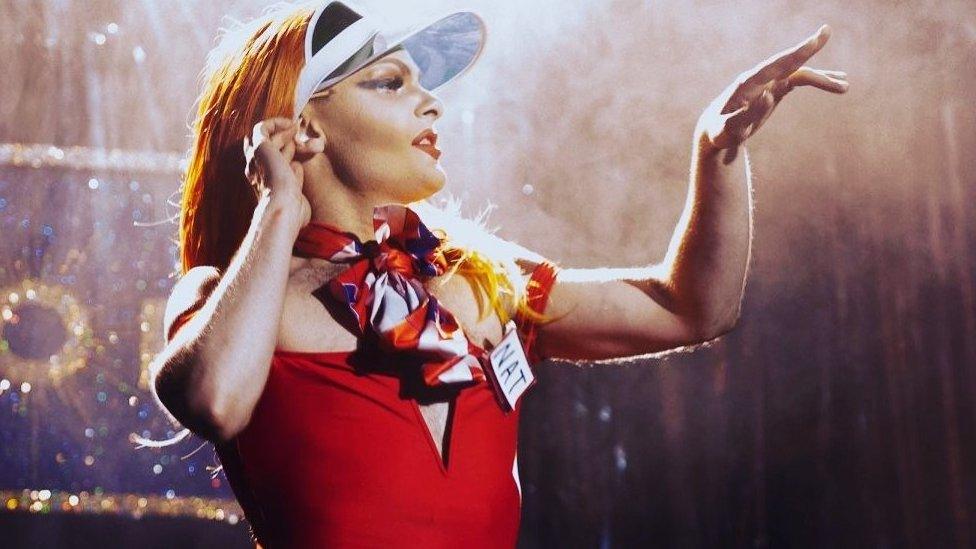
James Tobin performing as Nat West, his Irish Dancing drag queen persona
There are a number of reasons why many millennials - those born between 1981 and 1996 - seem to have such a strong entrepreneurial spirit.
Most were starting their career or in education during the 2008 recession, so have grown up in the shadow of job insecurity and stagnating wages.
They may reason that a second job offers something to fall back on if their main job doesn't work out.
At the same time, a sideline can provide some much-needed extra cash.
Henley Business School calculates that the average side hustler makes about 20% of their income through their second job, and are thought to collectively contribute £72bn ($93bn) to the UK economy - 3.6% of GDP [gross domestic product].
Following a passion

James has three jobs, including one as a workshop performer
Side hustles can offer far more than money and security.
Research has repeatedly shown millennials' priorities at work are to make a difference and create something they care about.
Almost three-quarters of people who start a side hustle are following a passion or exploring a new challenge, according to the research.
That's the case for James. An aspiring actor, he worked odd jobs including stints at Nando's, a theatre box office and at a golf course.
Struggling to find relevant work after drama school, he moved from Hertfordshire to London and started performing at afterschool workshops.
He soon became interested in the capital's LGBT scene and now compères club nights and performs on stage as Nat West, his Irish Dancing drag queen persona.
"I don't think it's weird to have multiple jobs nowadays. The gig economy is common for this generation - especially as a lot of people want creative careers now," James says.
Juggling jobs
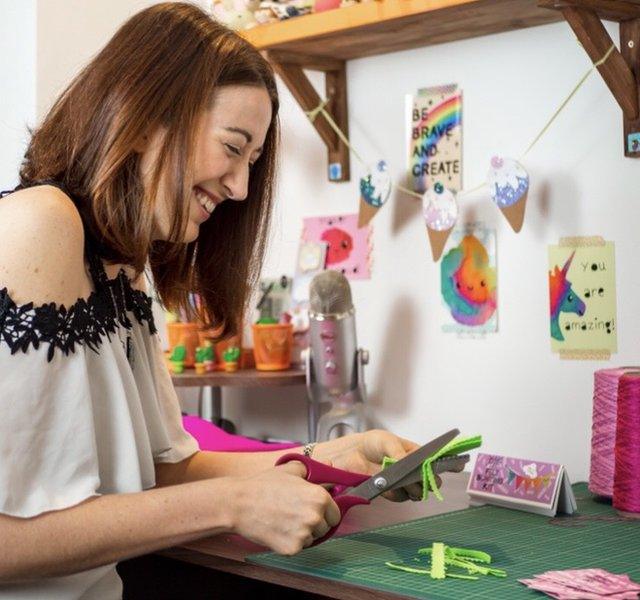
Becci Mai works on one of her designs
Like James, Brighton-based Becci Mai Ford, 26, says finding the right job after graduating was a struggle.
She did a succession of "pretty horrible" jobs, such as working for a debt collection agency and for a pub firm.
After a friend died in a car accident, Becci realised she didn't want to rush into another nine-to-five.
Instead, she moved to South Korea for a year. This helped to inspire her crafting company Ellbie Co, which sells quirky DIY cross-stitch and embroidery kits.
To pay the bills, she works three days a week in customer support for a telecommunications company.
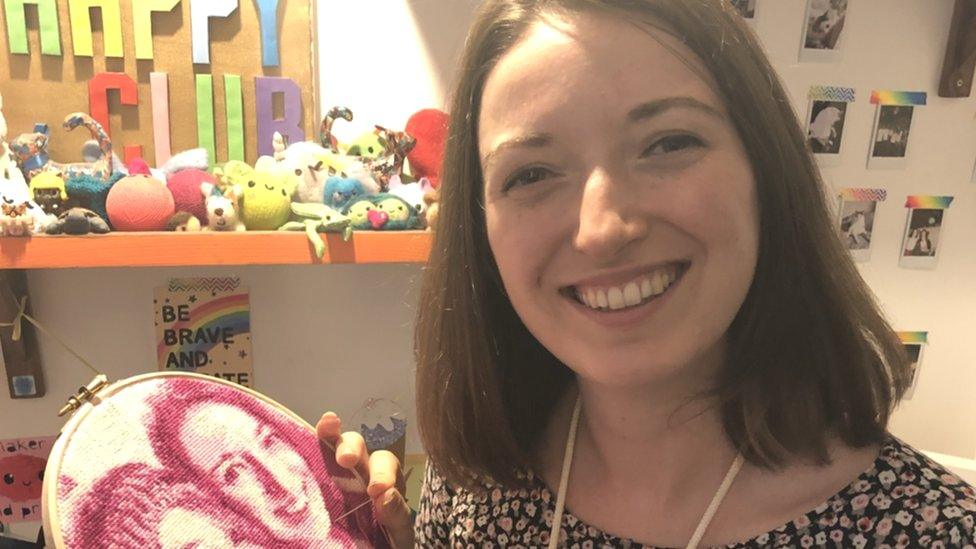
Becci Mai designs selfie cross-stitch kits
"It can be difficult to manage [both jobs], but I think I have got better at it over time because my day job is so dramatically different," she says. "I love the people at my day job, but it's not creative."
Her dream is take Ellbie Co full-time.
"When I'm doing accounts and spreadsheets, it feels more like 'work', but if I didn't feel like it was worth it I would stop," she says. "It's not financially worth it right now but it fuels my creative soul and it makes me happy."
The power of tech
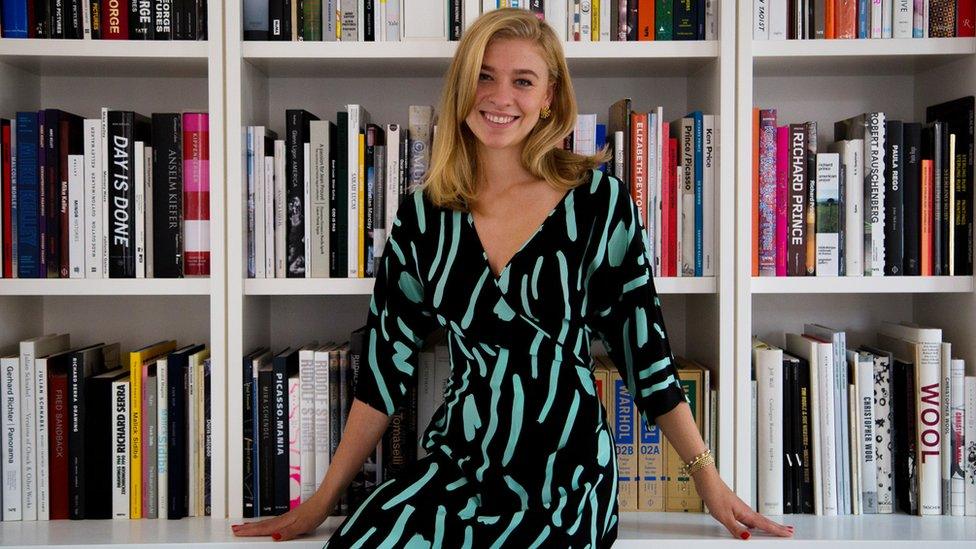
Eliza Walter has a sustainable jewellery sideline
Of course, people have always worked second jobs or started their own businesses.
But a flexible mindset and the proliferation of apps and social media have meant sidelines have really taken off.
Twenty-six-year-old Eliza Walter estimates that 35%-40% of her customers find her Lylie's jewellery brand through Instagram, and invests in a social media consultant.
A London gallery manager by day, she also designs and creates jewellery made with "e-waste" - precious metals salvaged from discarded technology.
Lylie's taps into two hugely popular trends - sustainability and customisation. But Eliza - who is originally from Lincolnshire - is happy to keep her jewellery business part-time for now, partly thanks to her "incredibly supportive" employer.
"I want to give [my business] the best possible chance to succeed, "she says. "I had a choice to go full-time or give myself the financial security."
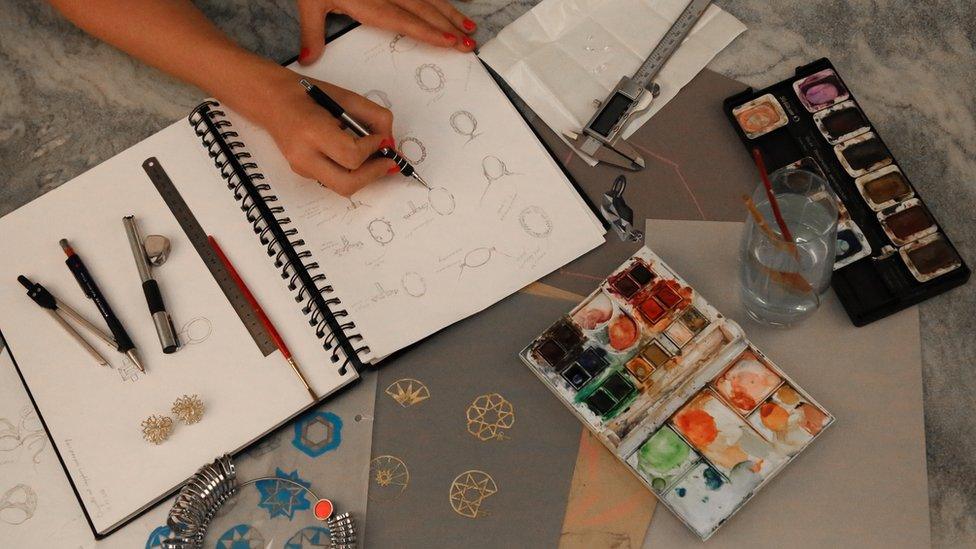
Eliza designs and creates bespoke jewellery
Money worries are a reality for many millennials. One in five UK adults aged 25 to 34 spend more than 60% of their income the day they get paid, KPMG estimates, compared with 8% of over-55s. This money was most likely to go on housing costs, utility bills and loan repayments.
Mobile apps have also aided the more commercially minded side hustler. Peer-to-peer firms such as Uber, Deliveroo, AirBnb and TaskRabbit allow users to do everything from odd jobs to renting out homes and parking spaces from their mobile phone.
Not all rosy
Despite the flexibility and extra income on offer, James admits that having several jobs can have its downsides.
"It's a bit scary at times, because everything is on zero-hours contracts apart from the teaching, which is [paid] termly. A lot of creative types battle with this - how long are we prepared to do this for?
"If I was in my 40s it might make me reassess, but for now I have to show willing."
Zero-hours contracts - employment without a set number of hours - have faced a backlash recently, with some firms having been accused of exploiting workers by using them.
Employees aren't the only ones potentially missing out.
One poll by software company CIPHR suggested 62% of those with a side hustle work on it during office hours, while 46% do not declare their secondary income to HMRC.
However, when they go to plan, a side hustle can be a unique opportunity to pursue a passion or test out a new career, while maintaining the steady income of a day job.
- Published13 April 2017
